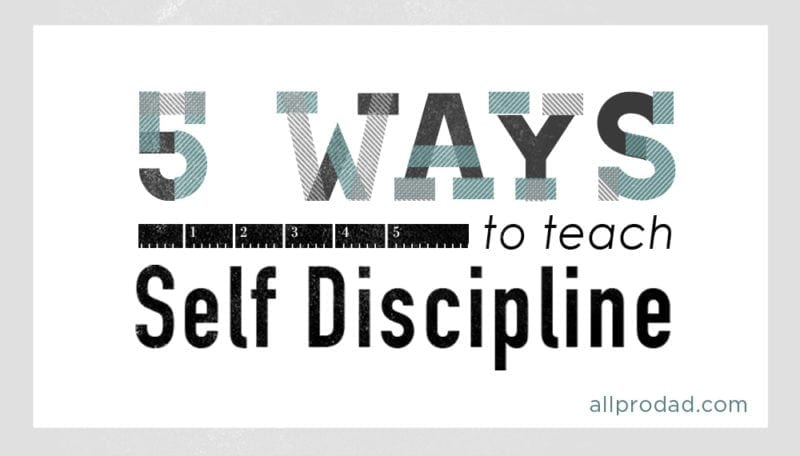“With self-discipline most anything is possible.” – Theodore Roosevelt
From a parenting perspective, it is very important to counteract what our children are exposed to with lessons of exerting will over want. Recently my daughter made a promise to not eat any meat for a period of five weeks. She’s not that type, and enjoys poultry, beef, and pork as much as anyone could. Yet, for five weeks she kept her promise despite many temptations to break her vow. What a testimony to her self-discipline that at such a young age she was able to learn this valuable lesson. It will carry her far in life if she keeps it.
Consider these 5 Ways to Teach Children Self-Discipline.
1. Structured Routine.
Organized and consistent structure breeds discipline. For example, by setting a designated time for homework to be completed each day, the routine will become a natural habit. There will not be notes coming home about incomplete assignments. The most efficient time is right after they arrive home from school before the distractions start.
2. Committed Determination.
Persistence and determination are the keys to any form of success.Persistence and determination are the keys to any form of success. Leading by example, we can teach our children that seeing a commitment to its completion is a highly important character trait to develop. Outside distractions and changing emotions will always work against our primary focus. Yet, if we teach our children to keep those things at bay and stay on track, it will take them very far in life.
3. Learn the Fundamentals.
Peyton Manning did not become a future hall of fame quarterback just by believing he was good at football. It takes passionate hard work and tedious hours of practice to become a skilled player. He knows the fundamentals of his position as well as anyone who has ever played it. This is a mighty lesson to learn for our children. Learning the fundamentals naturally creates self-discipline.
4. Enforce Consequences.
There must be a consequence to failure and it must be enforced. If homework is not completed, there is a punishment. If household chores are left undone, there is a consequence. Punishment should always fit the action and should never be given emotionally. Make it clear from the outset and calmly hand it down when required.
5. Praise and Reward.
As there should be punishment, there should equally be reward. A Reward Jar for younger children and allowances for older children are just a few ways to provide a reward for a job well done. As they master certain goals, remove the reward and apply it to the next step in their growth. Our children love to receive our praise, so give it liberally when deserved.











Huddle up with your kids tonight and ask if they can identify things they have that they don’t need, but got simply out of want.